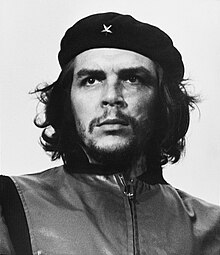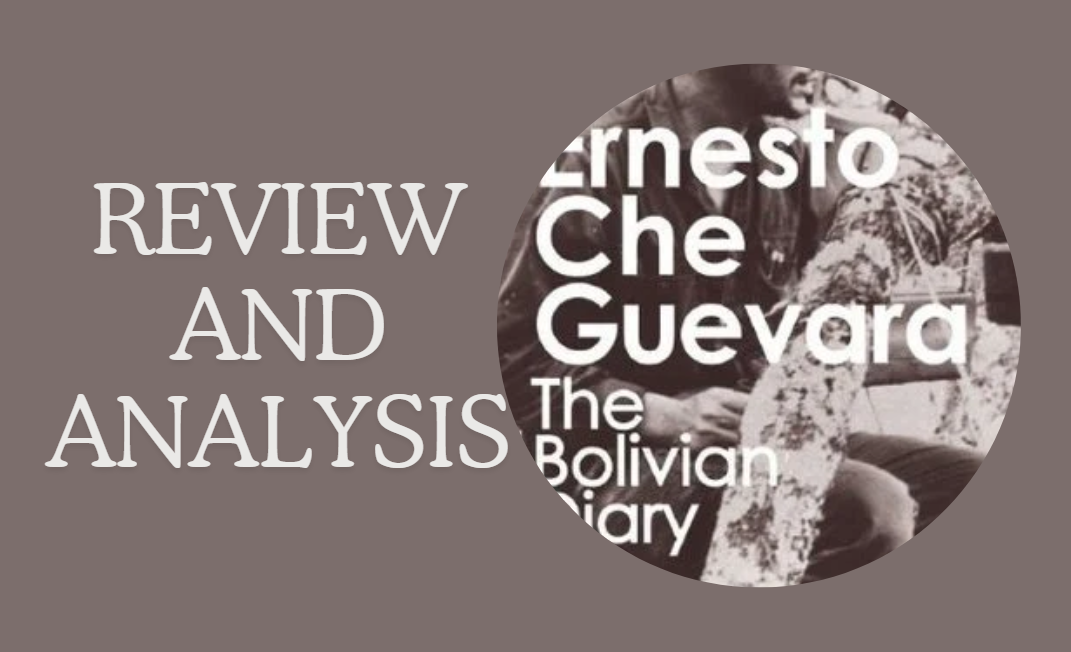The Bolivian Diary By Ernesto Che Guevara Book Review and Analysis is written with an in-depth analysis of the historical events that occurred at the time and how the biography has depicted many or each of them. Ernesto Che Guevara’s “The Bolivian Diary” is a poignant narrative of his last year, detailing his attempts to spark a guerrilla insurrection against Bolivia’s military government.
Found in Guevara’s knapsack after his capture and subsequent death in 1967, the diary offers an unvarnished glimpse into his struggle against CIA-supported Bolivian forces. The book stands as a moving tribute to Guevara’s revolutionary life and his steadfast belief in the potential for liberation in the Americas.
Character List Of The Bolivian Diary By Ernesto Che Guevara
“The Bolivian Diary” is primarily a first-person account by Ernesto Che Guevara, so it doesn’t have a traditional character list like a novel. However, there are several key figures mentioned in the book:

Ernesto Che Guevara: The author of the diary and the central figure in the book. Guevara was a Marxist revolutionary, physician, author, intellectual, guerrilla leader, diplomat, and military theorist. He played a significant role in the Cuban Revolution. His belief in promoting the interests of the poor through the world revolution led to his involvement in social reforms under Guatemala’s President Jacobo Arbenz.
Fidel Castro: The Cuban Revolution leader and close associate of Guevara authored an article titled “A Necessary Introduction” for the book.
Rolando: One of Che’s lieutenants whose diaries are also included in the book.
Pombo and Braulio: Other members of Che’s group whose diaries are also part of the book.
These figures play significant roles in the events described in “The Bolivian Diary.” The book provides a detailed account of their struggles and experiences during the guerrilla campaign against CIA-backed Bolivian troops.
Themes Of The Diary Seen In Detail
Though the book has many intricate sides to it, if listed and described, these themes would stand out the most:
Revolutionary Struggle:
The Bolivian Diary is a personal account of Che Guevara’s failed attempt to spark a revolution in Bolivia. It is a day-by-day chronicle of the guerrilla struggle that he led from 1966 to 19671. The book provides a rigorous and detailed account of the heroic final months of his life in Bolivia.
Leadership and Sacrifice:
Che Guevara’s leadership is a central theme in the book. Despite facing numerous challenges, he kept his men’s spirits up and continued to fight. His entries up until two days before his murder reveal his unwavering commitment to the cause.
Inspiration for Change:
The book aims to inspire Latin America by showcasing the potential of a revolutionary movement of workers and peasants that could challenge the Bolivian regime. Che Guevara believed in a global revolution to advance the interests of the poor.
Confrontation with Imperialism:
The diary also highlights the confrontation with imperialism, particularly with CIA-backed Bolivian troops. It exposes the lies of an earlier, pre-emptive edition prepared by the C.I.A. There was an attempt to undermine the credibility of Che and the Bolivian expedition, along with the Cuban Revolution itself.
Final Analysis Into Matters

“The Bolivian Diary” by Ernesto Che Guevara is a profound and moving account of the last year of his life, chronicling his efforts to instigate a guerrilla insurrection against the military government of Bolivia. The book provides a detailed account of Che Guevara’s guerrilla campaign against Bolivian troops backed by the CIA.
The diary began in 1966 when Guevara traveled to Bolivia to foment a revolution. The entries end just two days before his death in October 1967. Guevara describes the challenges of fighting in the jungle and maintaining morale, even as the struggle falters.
The Bolivian Army captured Guevara in October 1967 and found his diary in his backpack. The book contains “A Necessary Introduction” by Fidel Castro, exposing a previous edition prepared by the CIA to discredit Che, the Bolivian expedition, and the Cuban Revolution.
The book reveals a more vulnerable and experienced Che, contrasting with his youthful and adventurous self in “The Motorcycle Diaries” and his hardened determination in “Congo Diary.” The final entry recounts the events of the day preceding Che’s apprehension, which occurred two days prior to his execution.
The Bolivian Diary” provides a stark and moving account of Guevara’s experiences and is considered his most enduring monument. It offers valuable insights into his revolutionary ideals and his unwavering belief in the possibility of liberation for the Americas. The book provides an exact, detailed account of the final months of Guevara’s life in Bolivia, serving as a moving memorial to his revolutionary legacy. The publication date of the content is June 1, 2021.
The Bolivian Diary Book Review Over Its Influence On Social Structure
The Bolivian Diary, written by Che Guevara, has had a significant influence on our social structure in several ways:
Inspiring Revolutionary Movements:
The book has served as a source of inspiration for revolutionary movements around the world. It provides a detailed account of the guerrilla struggle led by Che Guevara in Bolivia, showcasing the potential of a revolutionary movement of workers and peasants.
Creating a Revolutionary Icon:
The events described in the diary, along with Che’s execution, transformed him into a martyr and further magnified his legend1. This transformation has had a profound impact on social structures, particularly in countries where revolutionary movements have taken place.
Influencing Political Thought:
Che’s writings have influenced political thought, particularly in relation to imperialism and the struggle for power among workers and peasants2. His ideas continue to resonate with many people today, influencing discussions on social justice and equality.
Shaping Public Perception:
The diary has also played a role in shaping public perception of revolutionary movements. Despite the hardships and challenges faced by Che and his men, their resilience and determination are clearly depicted in the diary1. This portrayal has influenced how people perceive and understand the nature of revolutionary struggles.
In conclusion, The Bolivian Diary has had a significant influence on our social structure by inspiring revolutionary movements, creating a revolutionary icon, influencing political thought, and shaping public perception. It continues to be a relevant piece of literature that provides insights into the complexities of revolutionary struggles.
Presenting The Bolivian Diary Reviews
“The Bolivian Diary” is a book written by Ernesto Che Guevara, which chronicles his final months in Bolivia as a revolutionary guerrilla leader. The book received mixed reviews. Some praised its detailed account of events, while others criticized its bias. According to one review on Goodreads, the book has a rating of 3.50 out of 5 based on 8 ratings and 2 reviews.
Another review on the same website describes the book as “stark and moving” and “Guevara’s most enduring monument.” Midwest Book Review praises the book for its “rigorously exact and detailed information on the final months of his life in Bolivia.”

